It’s Friday! That means we have a Teachers Write mini-lesson for you, and you can also hop on over to Friday Feedback if you’d like to get some feedback on your work & help others as well.
Today’s guest author is Erin Dionne, whose latest book for tweens is Lights, Camera, Disaster (Scholastic 2018). Erin is the author of five other books for young readers, including the 2014 Edgar Award finalist Moxie and the Art of Rule Breaking (Dial 2013). Her first picture book, Captain’s Log: Snowbound, will be released in 2018 from Charlesbridge Publishers. She teaches at Montserrat College of Art and lives outside of Boston with her husband, two children, and a very indignant dog. Find her online at http://www.erindionne.com.

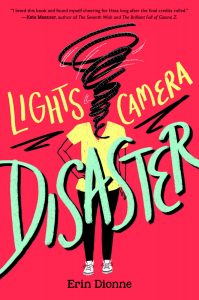
The Nitty-Gritty:
Distancing Words and Tightening Prose
When we’re telling stories, we’re inviting readers into our characters’ worlds. We want our readers to experience the same emotions and situations that our character feels, because the closer we identify with a character, the stronger the story. Also, the harder it is for that reader to put the book down (and we never want readers to stop reading!).
One of the craft elements that I’ve been focusing on recently, and wish I had known about when I was writing my earlier novels, is the elimination of distancing words. These words dilute the connection between reader and character—so instead of being in a character’s shoes, it’s as though we’re watching them live their lives through a pane of filmy glass.
We do so much work to build exciting worlds, use active verbs, give our main characters strong voices and clear wants and desires…but these distancing words can put all that work aside.
These words on the page create distance between the reader and the story. Think about the way that you experience the world. Is this the way you talk in your head?
I am going into the room.
I hear the whirring of the fan.
I realize that I left my sneakers at the pool.
I’m willing to bet that you don’t actually think this way in real life. So we don’t want our characters, and by extension, our readers, thinking this way, either. Distancing words separate readers from the main character, whether we’re aware of it or not. There’s that filmy glass plate between the reader and the narrator—and no one wants to look at or listen to something through filmy, sticky glass.
So how do you fix it?
Distancing words are easy to spot once you know what you’re looking for, and make an incredible difference once they are gone.
Distancing words (sometimes called “filter” words) include:
I heard/hear/saw/see
She smells/feels/thinks
They realize/understand
We look/watch
One way to think about these words is that they are telling readers what the action the character is doing, as opposed to directly showing readers the character’s actions.
Here’s an example:
I saw the cat enter the room.
Without the distancing word:
The cat entered the room.
The reader already knows we are in a first person narrative, and that the narrator sees with their eyes (assuming this character is not visually impaired). So the we as the writer can safely eliminate the distancing word and restructure the sentence to be more of a direct experience for the reader.
Now, my two caveats to all of this: 1.) this is a great craft element to focus on in revision, or to help you warm up for the day’s writing by reviewing the previous day’s work. This is not something that I focus on while drafting, because I’d be so busy worrying about distancing words that I wouldn’t get work on the page!
2.) Sometimes you need a distancing word—the sentence/idea won’t work without it. That’s okay! If you try to remove the word and you can’t, you likely need it! And that’s how you know you’re using those words to the best of their ability.
Ready to tighten your story and get rid of those distancing words?
Your Assignment: Select a section of your work – either from a work-in-progress or from something you wrote for camp earlier in the summer. Print it out (or you can do this on the computer, but I like to work with paper when I revise). Highlight all of the distancing words that you find in the section. Then, go through them: are there ones that are necessary to keep? Ones that you can get rid of?
Make the edits and review the tightened section the next time you’re at the computer. Does it feel more immediate to you? What does it do to your pacing?
Leave me your thoughts in the comments. I’ll respond, and draw a random winner on July 24 to receive a copy of my newest novel, LIGHTS, CAMERA, DISASTER (Arthur A. Levine, 2018).

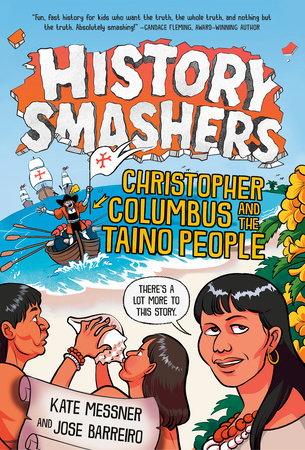
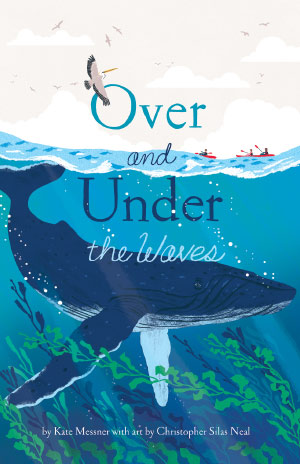
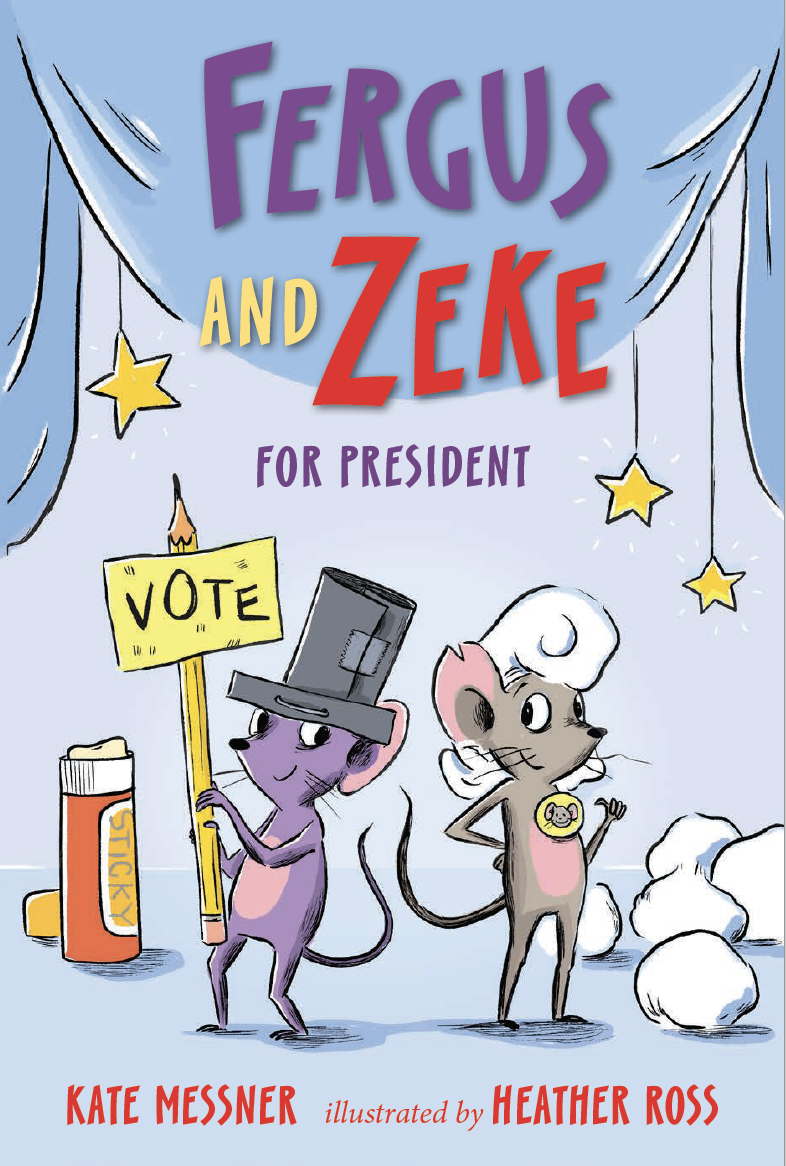
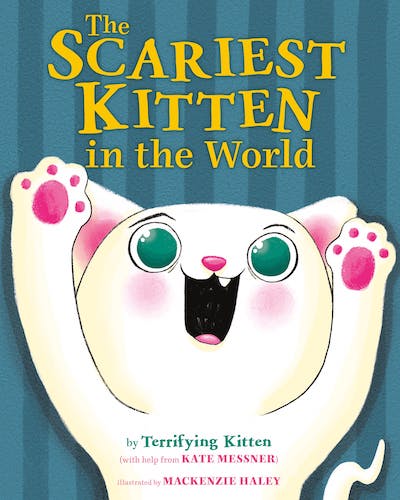
Wow, what a difference it makes to remove distancing words. My 1st draft had more distancing words than I would have thought. Quite an interesting way to edit a piece. Can’t wait to share this with student and teachers. Thank you. This piece is told from the perspective of a stuffed animal who has just gotten lost from his boy.
Wiggling, squirming, and twisting away, finally breaking free, but it’s too late. With a Whoossssshhhhh, there is no escape . One loud, sorrowful wail escapes and reaches my ear…”DAKOOOOOOOOTAAAAAAAA.” Palms, forehead and nose press white against the glass of the train window. Glued there, eyes darting left then right, searching, hoping, tears making tracks down his face, mouth open as if his heart has been ripped out too. Slowly, slowly, Chuuuuuuuug, chuuuuuuuug, chuuuuuuuuuug, out of the station. GONE! It’s quiet now, but his one enormous wail has already reached deep, deep, down, all the way to my toes. I’d feel his wail in my heart but it’s on that train with my little boy…going…going…going…forever away.
Lost…Alone…So very, very cold!
Ohhhh, this is so heart-wrenching! I want to help the stuffed animal find his boy! I love that s/he is more concerned for the boy’s well-being than for him/herself even though s/he is now all alone and cold. It’s as it should be! I did have to read the passage a couple of times to figure out if the face pressed against the glass belonged to the boy or the stuffed animal, and who was doing the wailing, but that might be because this is an excerpt. I’d love to read more! Is this a PB?
I, too, have a crazy amount of distancing words in my drafts that I hadn’t noticed previously. I have work to do! 😉
Sorry, I have been out of town and just got back to check on the post. Thanks for the feedback on trying to figure out who was wailing and had their face pressed against the window. I may have taken too many of the distancing words out. LOL.. I am not sure what a PB is? Picture Book? My idea is for a picture book if that is what you are asking.
Oh no! Poor little stuffie. I hope he finds his boy.
Great use of action verbs in the beginning! This sounds like it will be quite an adventure.
Thanks for the feedback. I am still developing the idea in my head. I know the beginning and the end, The adventure part is a work in progress!
Dear Erin,
Love this lesson. Thanks so much for sharing. What a great tool to add to my writing kit. Show instead of tell can be a hard thing to grasp at times, but coming from this perspective is much easier to see. Thanks again.
Here is a very short piece from my WIP. I wrote a before and after. I didn’t change much but I think taking a few words out has made it stronger. The character is a bell ringer for charity at Christmas time.
People are interesting.
No, make that cheap.
Walking past me with their full grocery carts
And talking on their expensive phones
And refusing to
Drop
A dollar in a pot
For charity.
People are interesting.
No, they’re cheap.
Walking past me with full grocery carts
Talking on expensive phones
Refusing to drop a dollar in a charity pot.
What a difference those few words (and line breaks) make! Your revision reads with more anger now, I think. The first felt more tentative. I hope that makes sense for your MC because I agree that is is stronger. Nice!
I really love the immediacy in the second version. Both are powerful, but with those changes it’s really strong. Brava!
This is something that I struggle with constantly. Thank you, so much, for taking the time to set up this mini-lesson.
Thank you for this! I love my words, and sometimes I love them all so much sometimes I have too many in my sentences. It’s funny that in the excerpt I selected, one character does too. (Also, I love the title of your latest book.)
Aunt Kiki started calling me Bean when I was born, claiming my long legs looked like string beans spilling out of my diaper. The name stuck and now it’s mine. She’s being kind by calling me a planner, I know its code for over thinker. Actually, she would say it’s a euphemism for over thinker, because Aunt Kiki is an English teacher, and have I mentioned she loves words?
Now that I am old enough to survive the nighttime part of sleepovers, I spend my summers in Ocean City, NJ with Aunt Kiki and Uncle Chuck.
(And now I hear Uncle Chuck creating a math equation out of my life.)
Bean has been spending summers at the beach with her aunt and uncle for the past three years. If she started when she was eight, how old will she be on her next birthday?
(Answer- eleven on July 9th)
This is so fun! I have a real sense of not only Bean, but her aunt and Uncle, too.
Hi Erin,
Great clean-up exercise/revision strategy! I see this as being akin to getting one’s POV closer, as in close 3rd. I met you at the NESCBWI Spring Conference a few years ago during something that was like “speed dating.” You gave us an incredible amount of info in about .5 hours. Am sharing this post w/my CPs. TY. Excited for your PB w/Charlesbridge.
Hi Kathy! Thanks for your note. I’m so glad the info was helpful at NESCBWI, and I hope that this helps you and your CPs!
This seems so obvious, but it wasn’t obvious to me. Thanks for being here and sharing the lesson today. I appreciate that you highlighted that the time to eliminate distancing words is during revision and that sometimes they are necessary.
Hi Jennifer
It’s important to me that when we talk about writing, we identify at what stage in the process we’re talking about. Because otherwise it can be overwhelming and set up an unnecessary struggle.
Excellent post! I can’t wait to transfer this knowledge into my classroom as i know it will strengthen students’ writing.
From my WIP (contemporary YA)
Today, I had a destination.
A destination and a purpose.
Just past the rise of a short bridge, I cut to the right, leaving the pavement and immediately appreciating the softer surface below my feet. My pace slowed, not only because the ground absorbed more of my impact, but also because I had to watch for anything that might turn my ankle.
The stone walls that bordered everything in Ireland flanked both sides of the road. The gray expanse broken only by the green of hedges, an occasional driveway, and sometimes the wall of a house that sat too close to the road.
Erin,
Thank you so much for this lesson! I will definitely be using this with my concurrent enrollment students Intro to Writing. I teach a similar lesson, but you explain this so much better. Here is my revision.
Old paragraphs:
“Hi, hey thanks for last night. Here is my number.” I saw my boss looking over at me.
“Shoot, my boss is looking over here. I better go back to work, but I will call you.”
After twenty more minutes or so, she left, but again, as she rose, she crumpled up a piece of paper and threw it away.
When I saw that she had gone through the doors, I slowly walked over to the waste basket. Like a mouse grabbing for a piece of cheese before the trap snaps shut, I grabbed the yellow piece of paper. I could hear the rain fall on the skylight as I sat underneath.
Revision:
“Hi, hey thanks for last night. Here is my number.”
“Shoot, my boss is looking over here; I better go back to work, but I will call you.”
After twenty more minutes or so, she left, and again, she crumpled up a piece of paper and threw it away. I slowly walked over to the waste basket. Glancing around, I grabbed the yellow piece of paper, like a mouse grabbing for a piece of cheese before the trap snaps shut. Sitting under the skylight, I read the paper as the rain pelted above.
Oh, this is a great revision! You really made this more immediate for the reader. Do you see how it moves along quicker too? Nice job!
Excellent post. I can’t wait to share these with my students. I can see a direct impact happening.
From my WIP (contempory YA)
Today, I had a destination.
A destination and a purpose.
Just past the rise of a short bridge, I cut to the right, leaving the pavement and immediately appreciating the softer surface below my feet. My pace slowed, not only because the ground absorbed more of my impact, but also because I had to watch for anything that might turn my ankle.
The stone walls that bordered everything in Ireland flanked both sides of the road. The gray expanse broken only by the green of hedges, an occasional driveway, and sometimes the wall of a house that sat too close to the road
Oh, I want to know more! What is the destination? What purpose? Also, I love that it’s set in Ireland–one of my favorite places.
Thanks for this powerful revision tip! I posted your article on the Facebook page of a writing group in MN that I belong to called Women of Words. Your idea applies to oral storytelling as well as writing.
Thanks, Carol! I hope your group finds it helpful, too.
This is fantastic! I’ve noticed this before but hadn’t articulated why it was “off.” Thank you for this aha moment!
Yay! So glad it was helpful.
Thank you, Mrs. Dionne!
I love this activity because it is really challenging. I also noticed that I have too many distancing words in my writing. Ugh! I spent a ton of time revising and it feels good. I pasted in a snippet below.
I could use this activity with my sixth grade students. They often use way too many distancing words – now I know where they get it from (me). Although, now I have some examples to show them from all of my revising.:)
ORIGINAL:
On the bike ride over to Henderson Park, I decide that I need to stop at the library and do something. Ms. Crandall and Ms. Chester are at the front desk when I walk in. They are both excited to see me on game day, but I’m still not excited. I give both of them hand shakes. No more fist bumps for adults. I tell them that I need to run downstairs and find a word in the dictionary.
REVISED:
On the bike ride over to Henderson Park, I stop at the library. Ms. Crandall and Ms. Chester greet me with big smiles and are surprised to see me on game day. I politely give them both hand shakes. Mom would kill me if I gave them fist bumps. I quietly shout that I need to head downstairs and find a word in the dictionary.
The character, Sammy, is a fourth grade boy that is obsessed with soccer, but he is finding his love of reading and learning (slowly). “Quietly shout” works for him.:) More work to do.
Thank you again. Happy writing and revising!
Lovely! I think “quietly shout” works perfectly here. It’s an indicator of how personality and your voice. Good changes throughout.
Thank you for your post, Erin! As others have said, this sounds and feels somewhat obvious, but then when I looked at my own work- boy, did I have a lot of distancing words! This was very helpful and I made many changes that I combined with what was going on with Erin Hahn on Gae’s blog today! The Brilliance of Erins! We’re so lucky to have your expertise.
At the risk of being repetitive (and double-dipping), here is a brief bit:
I realized I had stopped walking when an upperclassman on a bicycle passed me with a bell trill and an “on your left”. I felt the wind of her passing on my face and dark oak leaves swirled just above the ground in her aftermath. She looked so carefree riding off into the distance. . .
I stepped off the path and sat cross-legged in the leaves on the lawn. The ground was damp and I felt the wet leaves and earth soak through the seat of my pants. It seemed a small price to pay. I leaned back until my back was resting on the ground and put an arm under my neck and looked up. The sky was robin’s egg blue with little wisps of white clouds. The tops of the trees were technicolor in my peripheral vision, forming a halo in the edges of my vision.
I could feel my heart beating throughout my body and it felt disconcerting- like the ground was moving under me, keeping time. Was it my heart or the earth’s?
REVISED:
I realized I had stopped walking when an upperclassman on a bicycle passed me with a bell trill and an “on your left”. The wind of her passing stirred the dark oak leaves which swirled just above the path in her aftermath. . . .
I moved off the path and sat, the wet leaves and damp earth soaking my jeans instantly. What had I been thinking going to French class? Who the hell cared about French? I leaned back until my back, too, was wet and put an arm under my neck. The scent of wet earth and decaying leaves wafted over me. That, and just behind it, the crisp, clean autumn air. I took a deep, shaky breath, swallowing the lump in my throat. Could Lola smell the air? Could she see this same robin’s egg blue sky? The tops of the trees were technicolor reds and oranges in my peripheral vision, forming a halo in the edges of my sight.
I closed my eyes to block it out. My heart beat throughout my body, not just in my chest, and it felt like the ground was moving under me, keeping time. Was it my heart pulsing or the earth?
Wow! Your revised version really pulled me in to what your character is experiencing here. Nicely done, with excellent physical details.